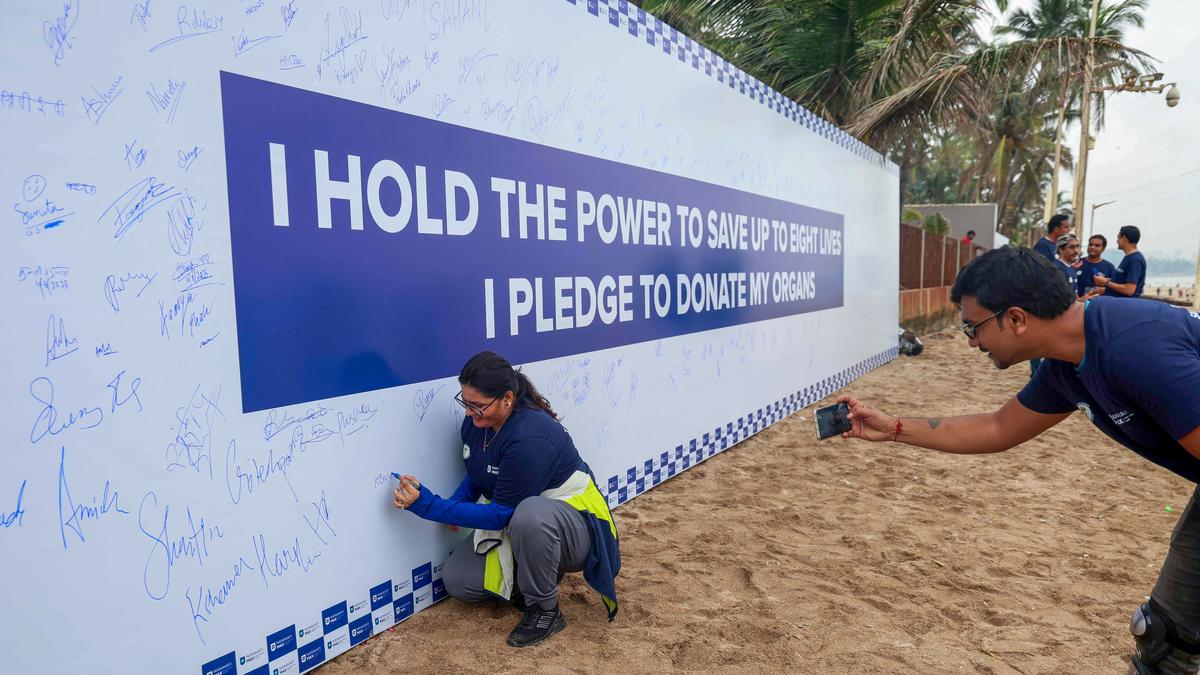Science
Transforming Organ Donation Awareness: A Call to Action

Organ transplantation represents a significant achievement in modern medicine, providing a critical solution for those facing terminal organ failure. Despite this, India faces a profound organ shortage, resulting in over 500,000 deaths annually due to the lack of suitable donors. In recent years, the number of transplants has increased from 4,990 in 2013 to 18,378 in 2023, yet only 1,099 of these were from deceased donors following brain death. India’s organ donation rate stands at a mere 0.8 per million, starkly contrasting with the rates of over 45 per million seen in countries like Spain and the United States.
Addressing the myths surrounding organ donation is essential to bridging this gap. Many families hold misconceptions about the process, which leads to hesitance in consenting to donation after a loved one’s death. A campaign to educate the public is urgently needed to dispel these fears and promote organ donation as a vital act of compassion.
Understanding the Myths
One prevalent myth is the belief that organ donation disfigures the body, preventing proper funeral rites. In reality, organ retrieval is conducted with care, ensuring that the donor’s appearance is preserved for viewing and final ceremonies. Medical teams work within cultural frameworks, and leaders from various faiths emphasize that organ donation aligns with the compassionate values of all religions.
Another significant misconception involves fears that hospital staff might prematurely declare brain death to procure organs. This notion is unfounded; brain death is defined through a rigorous process established by the Transplantation of Human Organs and Tissues Act, 1994. This process mandates compliance with strict medical criteria, a multidisciplinary board review, and thorough documentation to confirm irreversible neurological death.
Promoting Education and Awareness
Additional misunderstandings center on the age and health of potential donors. Many assume that only young accident victims can donate organs. However, numerous organs and tissues, such as kidneys, liver segments, and corneas, can be harvested from older donors or those who pass away from natural causes. Every donation, no matter the source, can save or significantly improve lives.
To effectively address these myths, a sustained educational effort is required. Audio-visual campaigns on television and social media can engage younger audiences. Featuring real donor families and transplant recipients can illustrate the life-saving impact of organ donation. Community workshops led by trained counselors can offer safe spaces for dialogue, addressing concerns regarding funeral rites and medical protocols.
Integrating organ donation education into school curricula is another crucial step. By including this topic in life sciences and ethics classes, students can develop a culture of giving from a young age. Peer-led education initiatives can further empower students to share accurate information and foster empathy.
Healthcare professionals play a pivotal role in championing organ donation. Regular training sessions can equip physicians and nurses with the skills to initiate compassionate conversations with families of potential donors. At Apollo Hospitals, dedicated transplant coordination teams support families through the complex decision-making process with sensitivity and clarity.
Building Public Confidence
A collective national effort is necessary to bridge the substantial gap between organ supply and demand in India. This initiative must be supported by policy reforms and grassroots engagement. One potential reform is the implementation of presumed consent, a successful model in countries such as Spain and Croatia. Under this system, every adult is considered a potential organ donor unless they opt out.
In addition to presumed consent, establishing robust family support systems and grievance redress mechanisms will enhance public confidence and ethical oversight in organ donation. It is crucial to view organ donation not merely as a medical procedure but as a profound act of charity that can leave a lasting legacy.
As World Organ Donation Day approaches on August 13, it is imperative for every eligible adult to register as a donor and for families to respect these decisions. For patients with end-stage diseases, organ donation is a lifeline. By dispelling myths and committing to this cause, we can ensure that no individual loses their life due to a lack of available organs. The time to act is now, and together, we can transform the landscape of organ donation in India.
-

 World5 months ago
World5 months agoSBI Announces QIP Floor Price at ₹811.05 Per Share
-

 Lifestyle5 months ago
Lifestyle5 months agoCept Unveils ₹3.1 Crore Urban Mobility Plan for Sustainable Growth
-

 Science4 months ago
Science4 months agoNew Blood Group Discovered in South Indian Woman at Rotary Centre
-

 World5 months ago
World5 months agoTorrential Rains Cause Flash Flooding in New York and New Jersey
-

 Top Stories5 months ago
Top Stories5 months agoKonkani Cultural Organisation to Host Pearl Jubilee in Abu Dhabi
-

 Sports4 months ago
Sports4 months agoBroad Advocates for Bowling Change Ahead of Final Test Against India
-

 Science5 months ago
Science5 months agoNothing Headphone 1 Review: A Bold Contender in Audio Design
-

 Top Stories5 months ago
Top Stories5 months agoAir India Crash Investigation Highlights Boeing Fuel Switch Concerns
-

 Business5 months ago
Business5 months agoIndian Stock Market Rebounds: Sensex and Nifty Rise After Four-Day Decline
-

 Sports4 months ago
Sports4 months agoCristian Totti Retires at 19: Pressure of Fame Takes Toll
-

 Politics5 months ago
Politics5 months agoAbandoned Doberman Finds New Home After Journey to Prague
-

 Top Stories5 months ago
Top Stories5 months agoPatna Bank Manager Abhishek Varun Found Dead in Well









